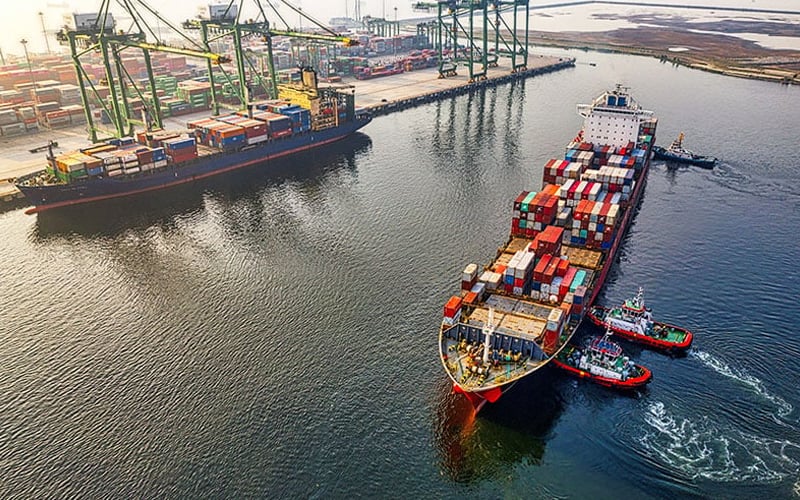
PETALING JAYA: The ongoing conflict in the Red Sea is starting to impact the local shipping industry, with consumers expected to bear the brunt of increased freight costs.
Attacks by the Iran-allied Houthi militia on ships in the Red Sea since November have seen major shipping lines taking a longer route via the Cape of Good Hope, resulting in an extended travel time of at least 10 days from Port Klang.
Checks by FMT with shipping lines showed that freight costs from Port Klang to the key European port of Rotterdam have seen a significant surge from Dec 15 to 31 and Jan 15 to 30.
The cost to ship a 20ft container rose from US$975 to US$3,300 (238%) while the cost to ship a 40ft container has increased from US$1,650 to US$5,100 (209%).
“The prices are rising because of the risk, the insurance premiums and the rerouted shipping. It will be passed on to consumers if they persist,” economist Geoffrey Williams told FMT.
“About 15% of global trade goes through the Red Sea, so this is a large amount. The current attacks by Houthi rebels are disrupting significant trade routes, which will include Malaysian and Asean trade.
“The Red Sea routes are important, but not definitive, in disrupting trade for Malaysia. The risk is whether it escalates into a wider regional conflict. The impact will be more significant then.”
In retaliation to the Houthi attacks on Red Sea shipping, US and British warplanes, ships and submarines have launched dozens of strikes across Yemen, widening the regional conflict from Israel’s war on Gaza.
In Malaysia, the Federation of Malaysian Manufacturers (FMM) has warned exporters and importers that freight rates are likely to triple this year because of the crisis in the Red Sea, one of the world’s busiest routes.
Port Klang Authority general manager K Subramaniam said the Red Sea crisis means fewer ships will call at ports as they spend more time at sea using the Cape of Good Hope route.
“Shippers would have to wait longer for ships to arrive at ports, and containers will also spend more time at ports,” he said.
“Schedules will be missed, as more ships are sailing. Cargo will be at ports longer, posing an operational challenge. But we have yet to see this here,” he said, predicting that “we will see the impact after two or three months”.
He said ships might be forced to compete for priority in docking, unloading, or loading their cargo, and may be placed in a queue system.
Subramaniam, who is the International Association of Ports and Harbors immediate past resident, also said if the disruptions persist into April or May, the Cape of Good Hope shipping route may become impractical because of strong winter winds. - FMT



No comments:
Post a Comment
Note: Only a member of this blog may post a comment.